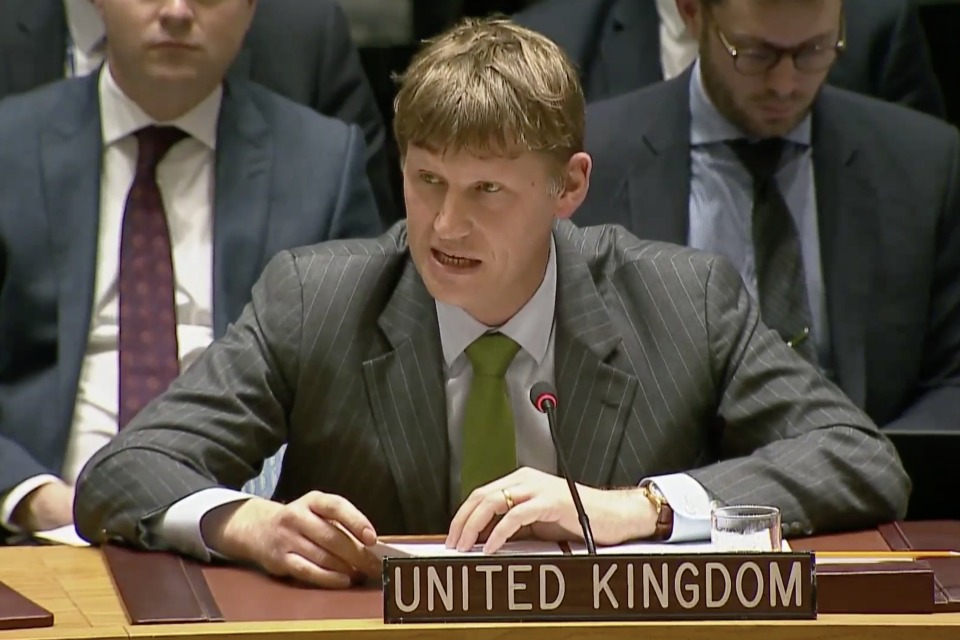Condemning Use of Chemical Weapons in Syria
Statement by Ambassador Jonathan Allen, Chargé d’Affaires, at the Security Council Meeting on Syria Chemical Weapons.

Thank you Mr President,
When I heard Russia had called today for an urgent meeting on the use of chemical weapons in Syria, I was glad that we could return to an issue on which this Council has a duty to ensure that those responsible are held to account.
That duty is even more pressing today, because yet another heinous attack on civilians was reported yesterday to the Council by the UN Secretariat. In this attack on Douma, in Eastern Ghouta, at least 21 civilians were treated with symptoms consistent with chlorine exposure. This follows a further reported attack on Eastern Ghouta on 13 January affecting six people.
Mr President,
In 2016 the Joint Investigative Mechanism found in three cases that the Syrian regime had used chlorine gas to attack civilians. Last year, it found the regime had used Sarin in Khan Sheikhoun. Now, as the regime are escalating their attacks on eastern Ghouta in an attempt to force the besieged opposition to surrender, we remain deeply concerned by continued reports of chemical weapons use in Syria.
In all this let us not forget that it was the regime’s attack on Eastern Ghouta using Sarin in 2013 that led to this Council adopting resolution 2118, which had the clear, unanimously endorsed aim of disarming Syria of its chemical weapons programme.
Throughout this process Russia has claimed to act as a leading power, a guarantor. But when the Assad regime deliberately ignored its obligation to stop using chemical weapons and continued to do so with such careless disregard for civilian life, Russia has chosen to abuse its power of veto to protect the Assad regime.
Russia says that they supported the renewal of the JIM mandate and that it was the rest of us who could not agree with their terms that killed it. Yet their previous resolution would have removed the JIM’s ability to investigate the Assad regime, which has been found responsible for multiple attacks. Russia has made clear several times they will not support a new investigative mechanism as long as it has the power to hold to account a Member State of the United Nations. And it seems from my rapid reading of the latest text that this proposal is another attempt to shift attention onto non-state actors. The Russians have even claim that Syria is a signatory in good standing of the Chemical Weapons Convention. They are not. They have not completed their declaration. The OPCW has repeatedly warned of inconsistencies, gaps and omissions. Russia has great influence over the Assad regime. For the sake of the Syrian people, for the sake of preventing future use of chemical weapons, we call on Russia to persuade their Syrian friends to get rid of their chemical weapons and comply fully with the Chemical Weapons Convention.
By ending the JIM, Russia also stopped the mechanism’s investigations of Daesh chemical attacks – the investigators had found that these terrorists had carried out at least two such attacks. We unreservedly condemn Daesh for its use of these vile weapons, which is yet another reason why we need to defeat these terrorists once and for all.
Mr President,
The UK was proud to join the International Partnership against Impunity for the Use of Chemical Weapons led by our French colleagues today in Paris. The use of chemical weapons is barbaric, illegal under international law and must stop. We must ensure we re-establish a mechanism to ensure accountability. We all know where the obstacle to that lies. In response, we will only redouble our efforts to pursue accountability for these crimes.
Thank you Mr President.